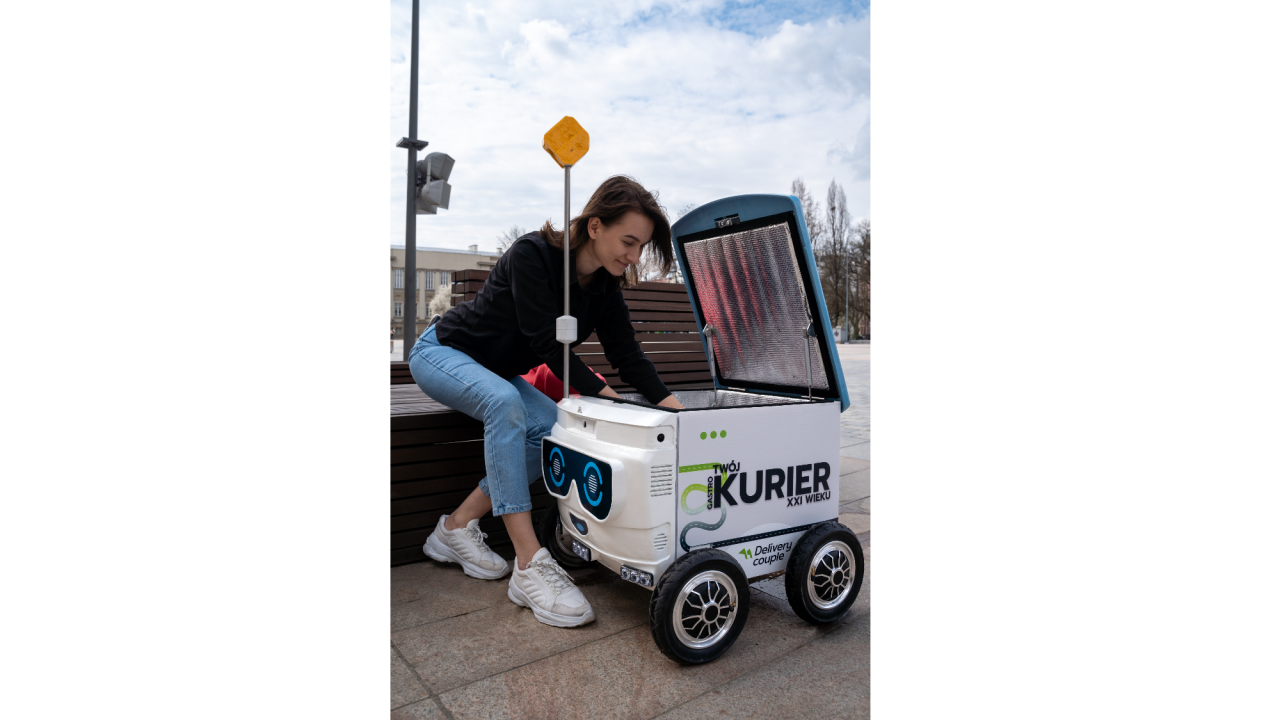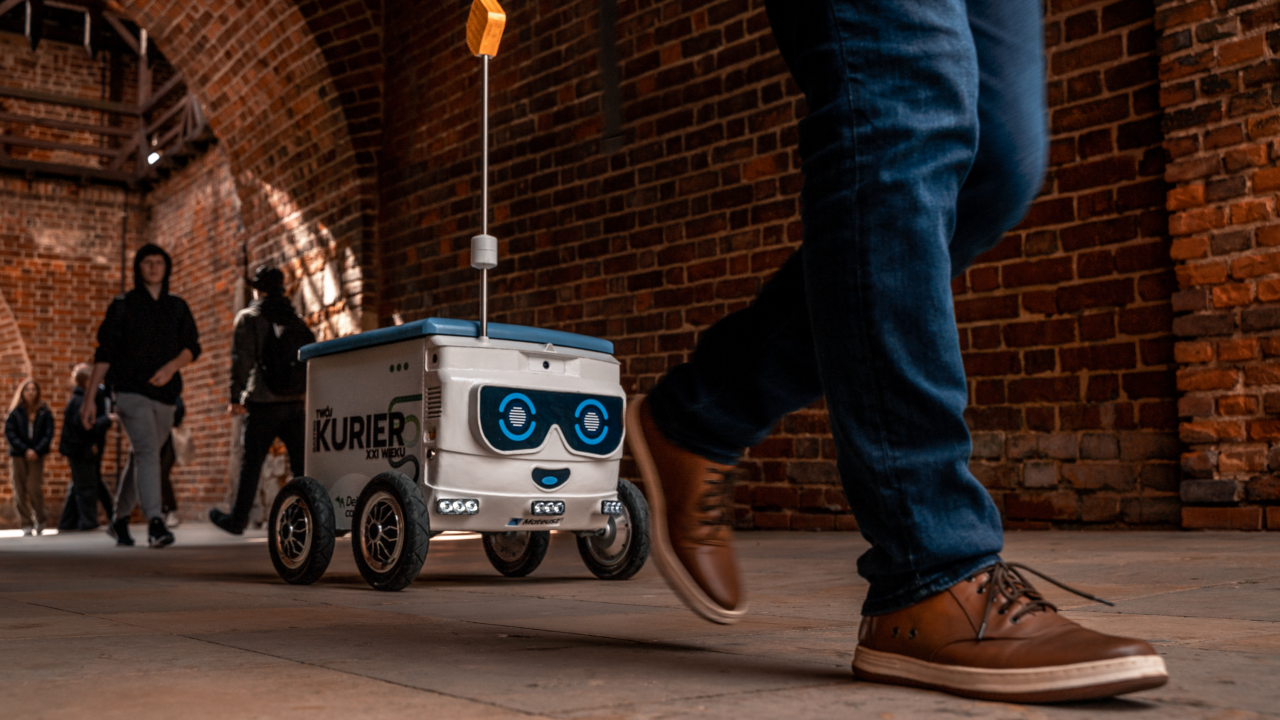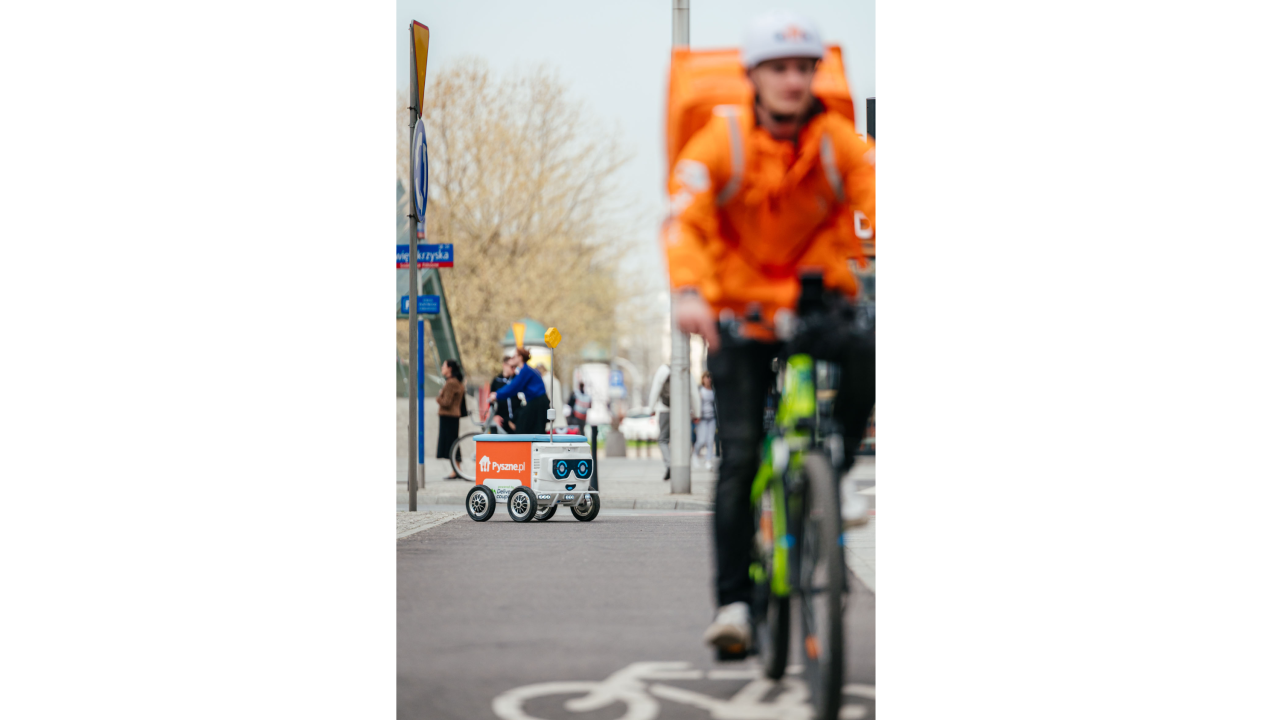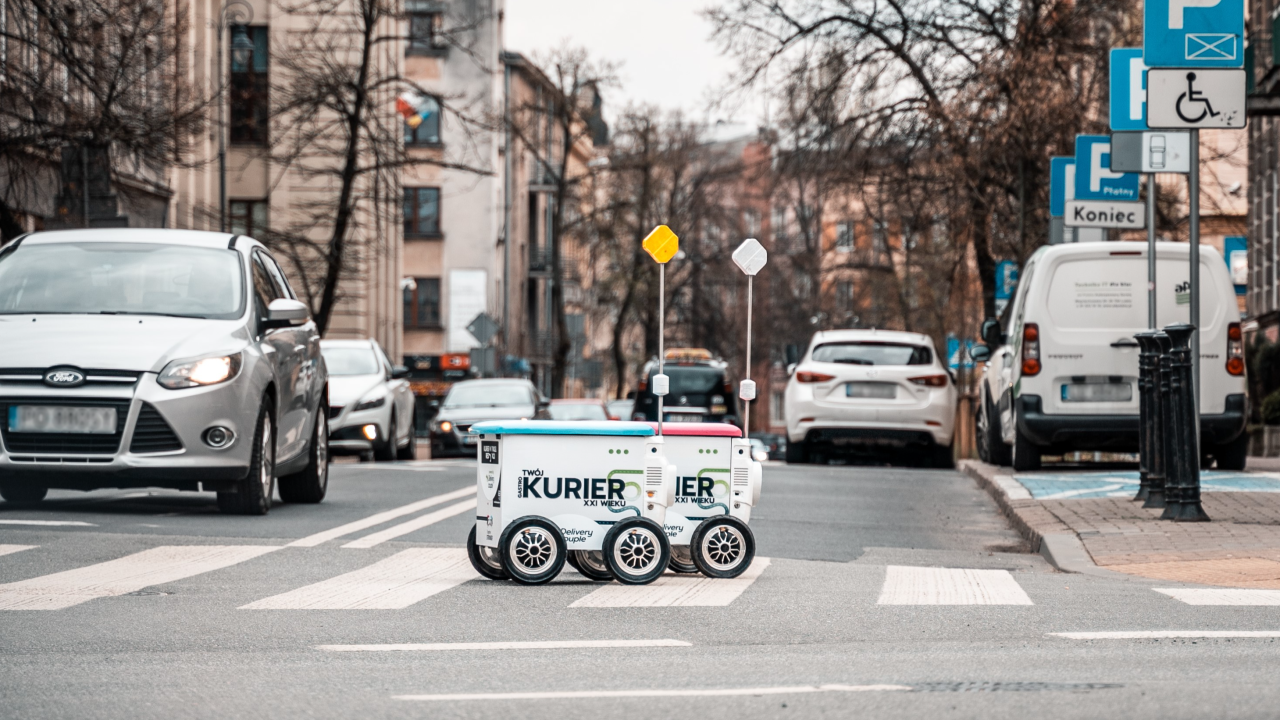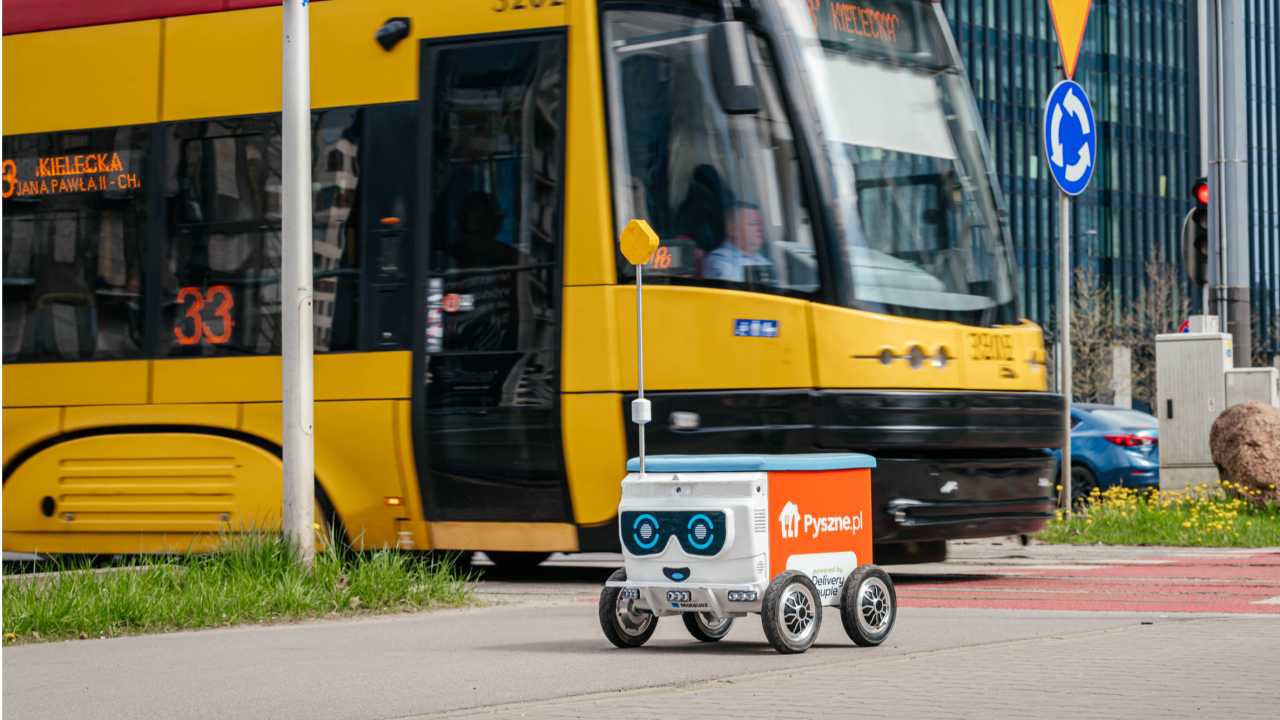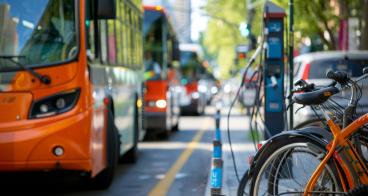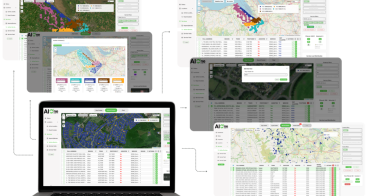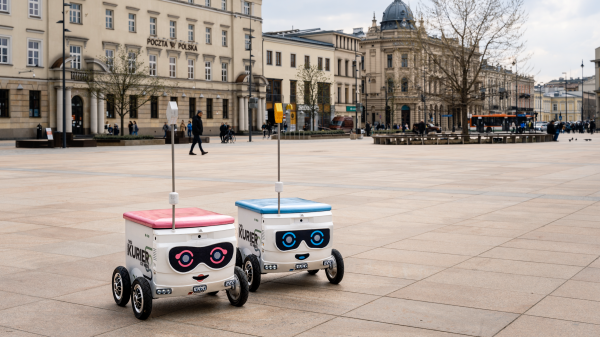
Last-mile food delivery robot
Enhanced food delivery experience thanks to 21st-century robot couriers by reducing costs, making the process scalable, solving operational problems and making deliveries more eco friendly.
Supported by: EIT Urban Mobility
Product Details
This company improves last-mile delivery experience by reducing costs, making the process scalable, solving operational problems and making deliveries more eco friendly using courier robots. The courier robot was created for companies dealing with logistics and last-mile food deliveries from restaurants, and for the restaurants themselves.
Thanks to automation, the operator's decision-making will be limited to key moments, limited to receiving in the restaurant and issuing the customer's order, and overcoming pedestrian crossings. The market does not offer solutions that would automate the process on a massive scale and allow to meet the requirements of consumers who expect a minimum or zero delivery fee while at the same time increasing expenses related to the possibility of offering food delivery services by restaurants.
Availability
Discover cities and markets where the product is available



